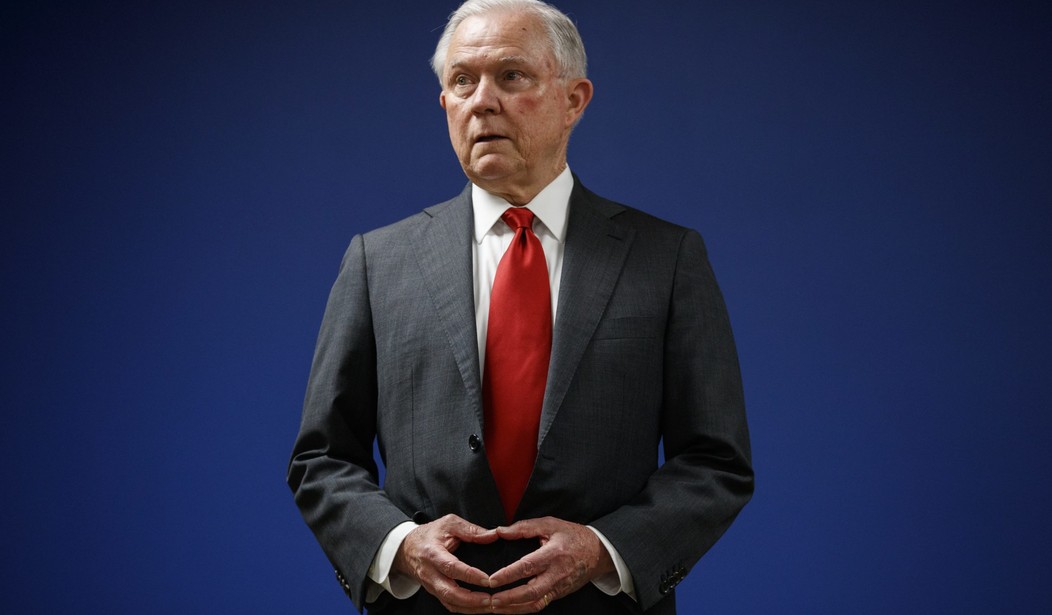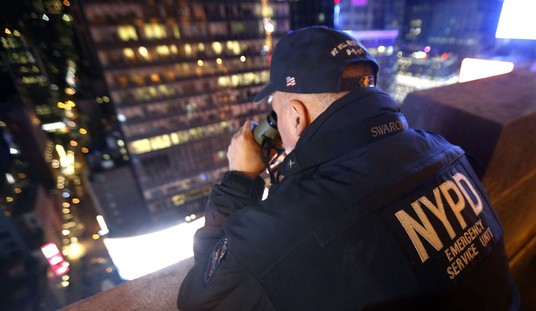WASHINGTON — Attorney General Jeff Sessions declared that “judicial encroachment” is the new “judicial activism” tactic, arguing that “probing discovery” demands on the executive branch are “unacceptable.”
“Courts are ignoring limiting guardrails and are allowing unprecedented reviews of governmental operations,” Sessions told the Heritage Foundation on Monday.
He argued that, since it’s up to the secretary of Homeland Security, a federal court shouldn’t be reviewing a discrimination lawsuit brought by multiple states against the Trump administration’s decision to end Temporary Protected Status for immigrants from six countries.
Sessions also said nationwide injunctions issued by judges against administration actions, such as a the travel ban from several Muslim-majority countries, “are reaching beyond the parties before them to shut down the entire administration of executive branch policy nationwide.”
“The third manifestation of judicial encroachment is the increasing authorization of invasive discovery into executive branch deliberations,” he said. “An increasing number of district judges are using purely legal disputes — which should be resolved by legal arguments alone — to depose executive branch officials and order disruptive and extensive disclosure of their internal deliberations and documents.”
Sessions argued that “motive is irrelevant” in judging “what otherwise would be a lawful administrative action.”
“What matters for legal purposes is the judge’s final product-the legal ruling. So, too, with most Executive branch decisions,” he continued. “But an increasing number of judges are ignoring these boundaries and view themselves as something akin to roving inspectors general for the entire Executive branch.”
The attorney general used as an example a judge’s order that Commerce Secretary Wilbur Ross be deposed about why his department added a citizenship question to the 2020 Census. A pending appeal to block Ross’ deposition is currently before the Supreme Court.
“The judge has decided to hold a trial over the inner workings of a cabinet secretary’s mind,” Sessions said. “This is not the first time we’ve had to seek emergency appellate intervention to stop outrageous discovery… Once we go down this road in American government, there is no turning back.”
“When a hot-button policy issue ends up in litigation, judges are starting to believe their role is to examine the entire process that led to the policy decision-to redo the entire political debate in their courtrooms. We have seen it in the litigation over the DACA rescission, the order about service of transgender individuals in the military, and the decision to terminate Temporary Protected Status,” he added. “Indeed, in the TPS case, the judge has gone so far as to order the production of a cabinet secretary’s handwritten notes taken during a high-level White House meeting.”
Sessions argued that “discovery against the president of the United States should not be treated like discovery against the president of a company.”
“Subjecting the executive branch to this kind of discovery is unacceptable. We intend to fight this and we intend to win,” he added. “This is why we are taking these discovery fights to the Supreme Court in emergency postures. They are disrupting orderly governmental functions at great cost.”
“…This is no little matter. These are not just minor discovery disputes. These are fundamental questions about the structure of our government. These are fundamental questions about power.”









Join the conversation as a VIP Member